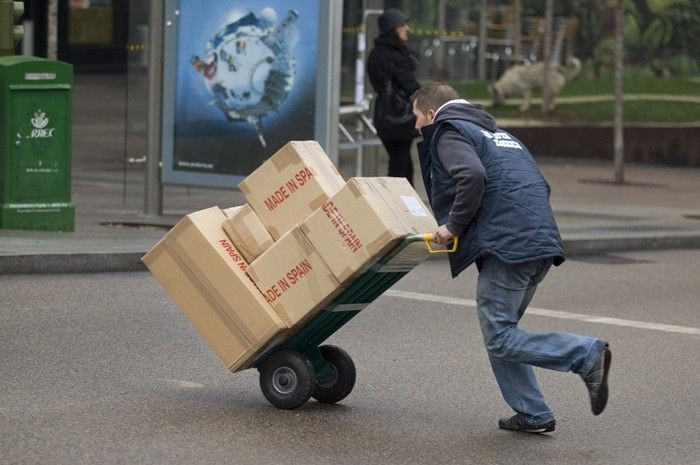Interview: Spain aims to match immigration to job market

Spain's new immigration bill will adjust the inflow of migrant workers to the demands of the job market in the new economic cycle, Secretary of State for Immigration Anna Terron said.
The demise of an economic model based on a decade-long construction and property boom which attracted a wave of South American workers has left Spain with the European Union's highest unemployment rate of over 20 percent.
The problem in the past has been that immigrant workers came to take up jobs which require very few skills, for example in the construction sector, and these jobs have now disappeared, Terron told Reuters in an interview late on Monday.
Of the country's more than 4 million jobless, over 600,000 are immigrants.
But we are now in a new cycle and the intense influx of immigrants has ended, Terron said.
Despite Spain's economic crisis, it is still difficult to find people for some tough jobs such as waste disposal, she said.
With the new immigration bill, which already has the support of unions and business leaders, the government now plans to focus on consolidating the situation of long term immigrants.
We want to focus on those immigrants who pay taxes, Terron said, flagging that in Spain there are over 1.7 million foreign workers contributing to the Social Security system, or 36 percent of the 4.7 million legal foreign residents.
According to government data at end-2010, nearly 2 million of Spain's legal foreign residents were from the European Union.
Romanians have now overtaken Moroccans as the biggest immigrant community with more than 800,000.
Latin American immigrants total 1.4 million and at the height of Spain's economic crisis were offered the chance by the government to return home to booming economies in Peru and Brazil. But few have taken up these incentives.
The new immigration law will allow immigrants who return to their countries of origin to have the same rights they had if they wish to come back to Spain after a period of three years.
If after three years, a contract comes up again for these immigrants, they don't have to go to the end of the of the queue. If they had long term residence status before, this will be respected, Terron said.
NO TO MULTICULTURALISM
The government's main challenge is to make a success of the integration of long term immigrants, focusing on individuals rather than championing multiculturalism, which British Prime Minister David Cameron said this month had fueled Islamic unrest.
German Chancellor Angela Merkel and French President Nicolas Sarkozy have recently sounded similar warnings about multiculturalism, saying it had failed to integrate immigrants.
Spain has never had a multicultural model, Terron said, adding that Madrid had not encouraged immigrant groups to live or organize themselves in separate communities, nor treated them differently on the grounds of culture.
MIGRATORY PRESSURE
Welcoming pro-democracy movements across the Arab world, she said Spain had seen no sign of additional migratory pressure from Morocco since the start of the uprising in North Africa.
We have not seen any increase in immigrants for this reason, but controlling our borders remains a priority, Terron said.
The revolution in Tunisia fueled Egypt's uprising and has also encouraged anti-government protests in other Arab countries, including in Libya, Bahrain, Yemen, Morocco, Kuwait, Algeria and Djibouti.
Terron said the Barcelona-based Union for the Mediterranean, created in 2009 by the EU and Mediterranean neighbors, should support and promote democratic movements and help governments in transition.
(Editing by Paul Taylor)
© Copyright Thomson Reuters {{Year}}. All rights reserved.





















